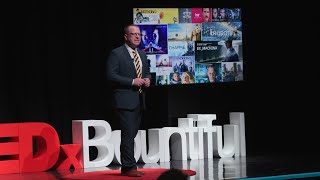
Parenting 2.0: Navigating the Integration of AI in Youth Development
As artificial intelligence (AI) continues to permeate various sectors of society, its impact on family dynamics and child upbringing cannot be overlooked. Dr. Toone, a distinguished expert in the field, recently addressed the evolving role of AI in the lives of parents and children, emphasizing its potential to revolutionize traditional parenting methods.
In a comprehensive exploration presented through a recent YouTube discussion, Dr. Toone examined the multifaceted effects of AI on youth development. He highlighted how AI technologies are shifting parenting paradigms, calling this transformative period “Parenting 2.0.” The concept encapsulates a time when digital innovation profoundly shapes not only the way children learn but also how parents interact with them, necessitating a re-evaluation of long-established parenting strategies.
Dr. Toone pointed out that children today are growing up in an environment rich with technologies that facilitate learning, communication, and creativity. AI-driven applications such as personalized learning platforms, intelligent tutoring systems, and interactive educational games are reshaping how children acquire knowledge. These tools provide adaptive learning experiences tailored to individual needs, potentially increasing engagement and efficacy in education.
Moreover, the role of parents is transforming in response to these advancements. With myriad resources at their fingertips, parents are increasingly expected to act as facilitators, guiding their children in navigating this digital landscape rather than solely being the providers of information. This shift may require parents to develop new skills, including digital literacy and the ability to assess and manage the appropriate use of technology in their children’s lives.
However, as Dr. Toone eloquently conveys, the integration of AI in family life also presents challenges. Concerns surrounding privacy, data security, and the emotional consequences of excessive screen time are pressing issues that require careful consideration. Parents must remain vigilant and engaged in dialogues about online safety and the ethical implications of AI technologies used by their children.
In conclusion, the emergence of AI integrates both opportunities and challenges in parenting. As society stands on the brink of this new frontier, it is imperative for parents, educators, and policymakers to collaborate effectively to harness the potential of AI in enhancing youth development while addressing the associated risks. This balanced approach will be vital for cultivating a generation of digitally-savvy, emotionally intelligent individuals capable of thriving in an increasingly complex world.
For those interested in the future of parenting amid technological advancements, Dr. Toone’s insightful discussion is available for viewing on YouTube, highlighting pivotal considerations for navigating this AI-integrated landscape.


